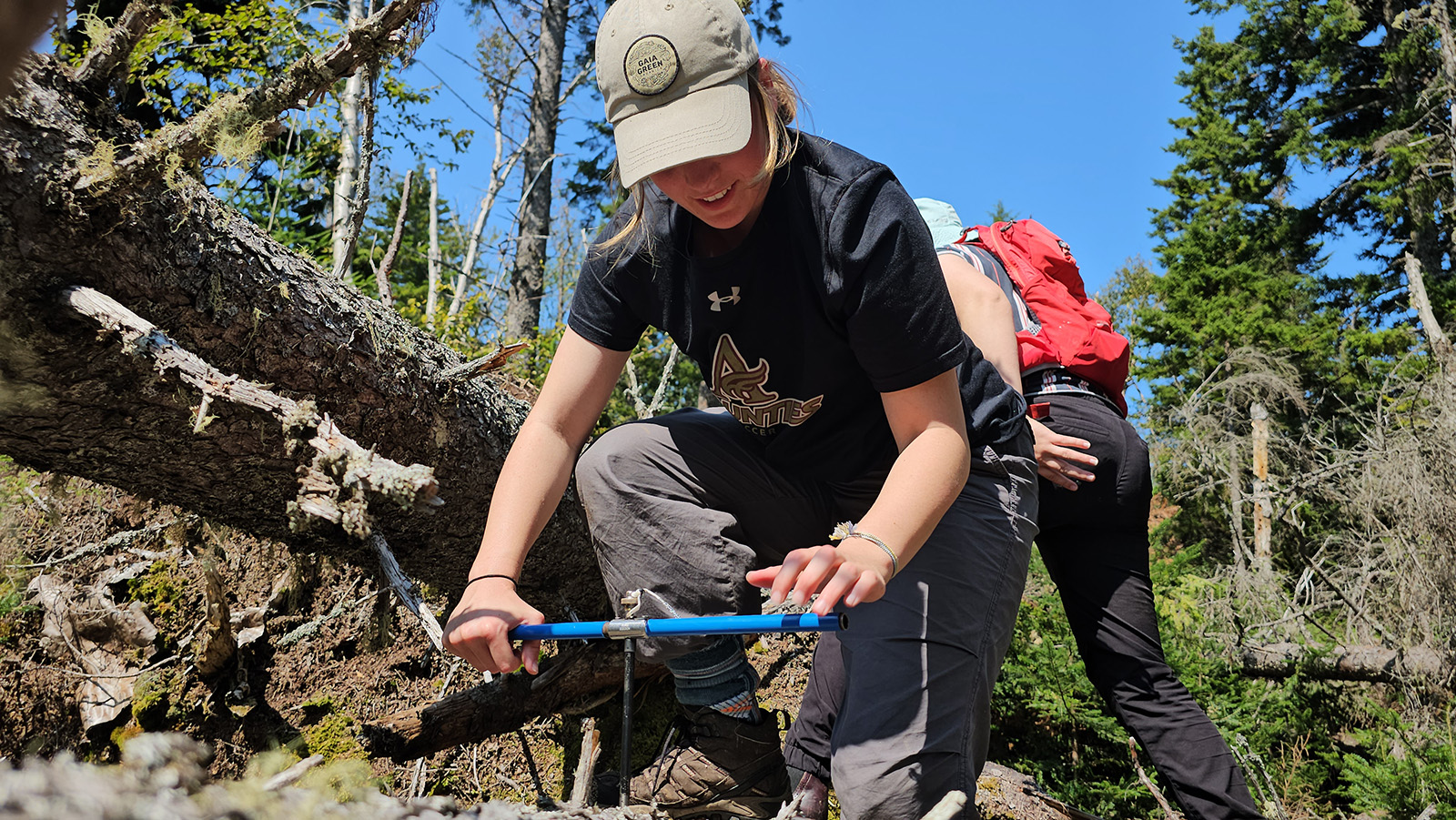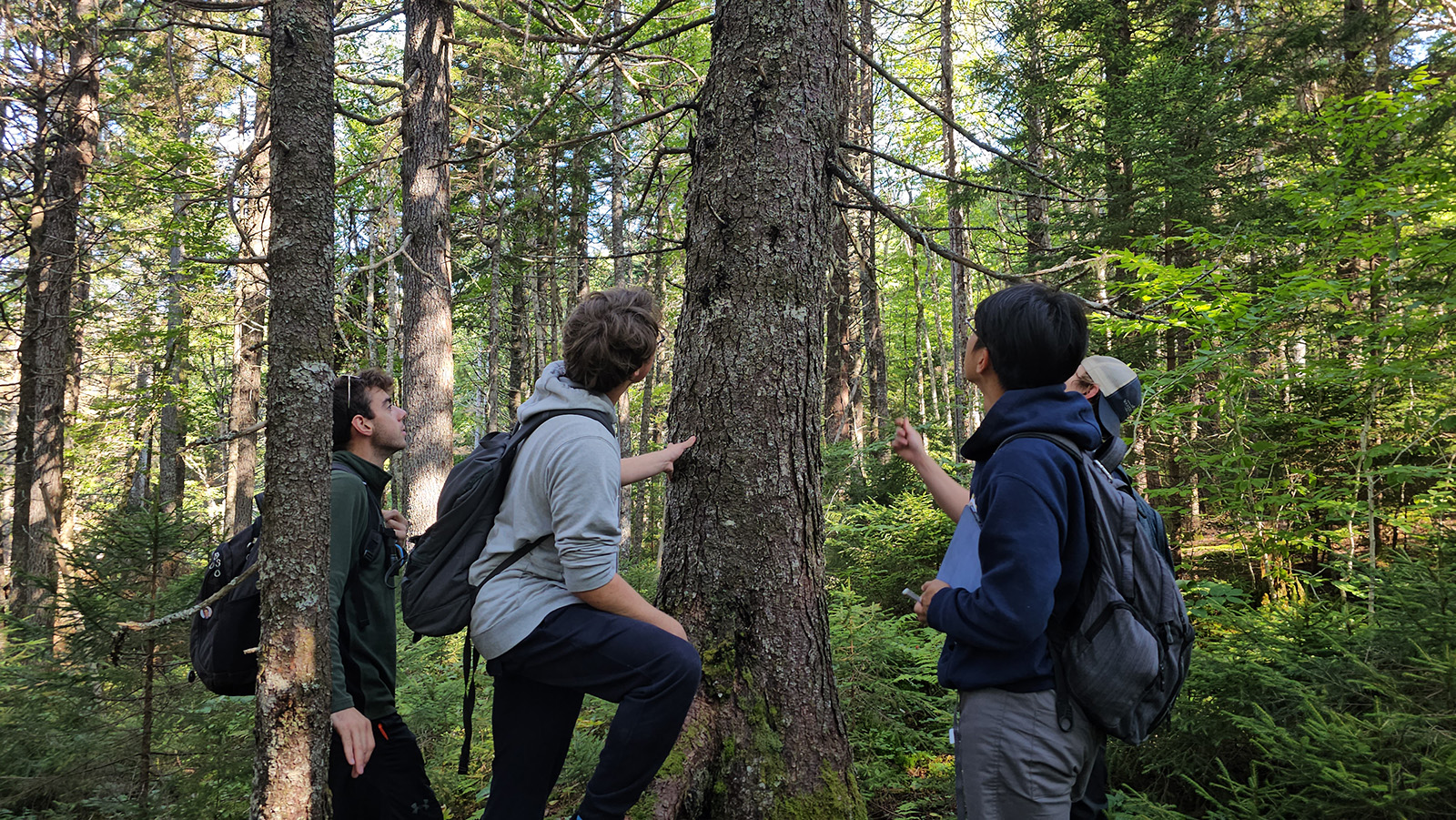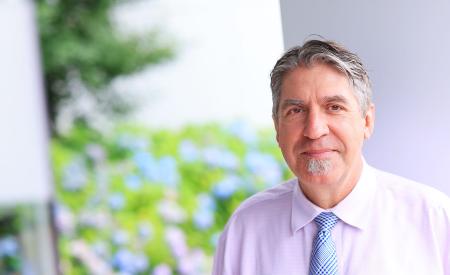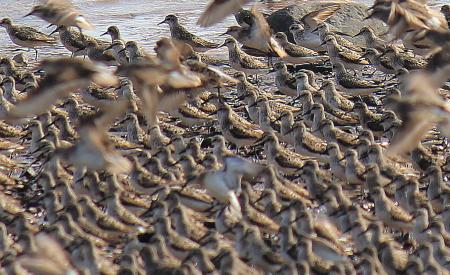Fundy Field Camp Celebrates 10-Year Anniversary
Geography and environment lecturer Ben Phillips ('07, MSc ‘09) has been taking students to Fundy National Park to engage in an authentic experiential learning opportunity for the past ten years.
“The students are learning about environmental science research methods and, in order to do that, we're going to Fundy National Park to work on actual projects,” says Phillips.
Over 130 students have completed more than 35 primary environmental science research projects and delivered just as many reports to the staff at Fundy National Park.

Some of the projects students have worked on include red spruce radial growth rates, eroding shorelines, lake and ocean microplastics, the legacy effects of acid rain on sugar maple trees, shifting zooplankton communities in the park's lakes, spruce bark beetle infestations, forest regeneration, and green shorelines.
Environmental science student Bronwyn Tieleman (‘23), who took the course in Fall 2021, says the program gave her the concept of what a research project entails from beginning to end.
“I look back on this course as one of the experiential learning moments of my degree that taught me to look at the world through a lens of curiosity and awe at how natural processes are happening,” says Tieleman.
Tieleman says this program was her first complete field research project.
“It gave me so much of the competence and skills that I needed for the rest of my degree and further research,” she says. “It was one of the first courses I took that really motivated me to continue pursuing environmental studies of various kinds and commit to further research opportunities.”
The week before fall term begins, students are invited to camp at Fundy National Park to explore some of the environmental issues presented by Phillips. Students break off into teams based on similar interests and craft their research proposal before heading into the field for testing. Each team has approximately four days in the park to collect their data.

“I wanted to do something that was fun,” Phillips says. When he studied at Mount Allison, students would travel to Jasper National Park to participate in similar research for this course. “Travelling to Fundy National Park is more accessible and gives students the opportunity to go back to the park throughout the semester if they require more samples or research.”
Students collect data for their research project that they work on for the rest of the semester through lab methods, analysis, and report writing. Phillips says the students become deeply engaged in their projects, demonstrating a readiness to take the necessary steps to see them through to completion.
"Having the designation of a national park elevates the experience for students,” says Phillips. “It’s important to have such a strong partnership with Parks Canada. There is a lot of people focusing on the work that students produce and my hope is that 10 years will turn into 20 years and we’re still working in the same place.”
Learn more about the Environmental Science program at Mount Allison.




